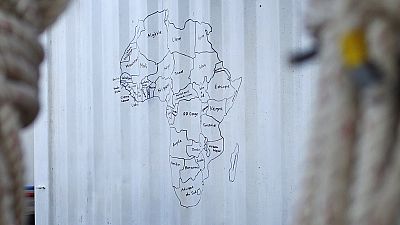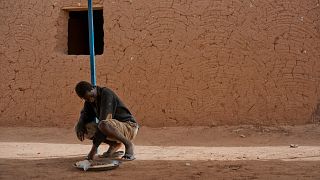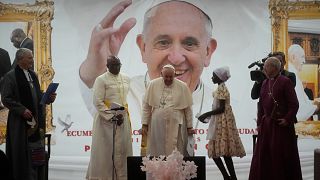Africa
Several measures have been taken by different governments to contain the spread of coronavirus, which has been confirmed in 49 African countries as of April 1.
Some of these measures have included strict enforcement of hygienic practices like hand washing, travel restrictions and economic relief programmes.
While each African nation arguably has different realities and contexts, in the face of a common enemy, leaders have taken to adopting measures announced by their counterparts.
In this article, we look at some of the measures that have become generally accepted practices in the fight against coronavirus across the continent.
Lockdowns
Lockdowns have become the latest tool employed by governments to prevent the spread of the coronavirus. Rwanda became the first country on the continent to implement a national lockdown, and was quickly followed by South Africa – Africa’s most impacted country, Botswana, Zimbabwe and Uganda.
Over Ghana, Nigeria and Namibia, governments have imposed partial lockdowns. Ghana’s Greater Accra and Ashanti regions were affected whiles Lagos, Ogun states and Abuja were listed in Nigeria. Namibia has locked down two provinces according reports.
The conditions of lockdowns include suspension of most business operations, movement of vehicles, and strict curfews, which are enforced by security agencies.
.embed-container { position: relative; padding-bottom: 56.25%; height: 0; overflow: hidden; max-width: 100%; } .embed-container iframe, .embed-container object, .embed-container embed { position: absolute; top: 0; left: 0; width: 100%; height: 100%; }
Economic relief
The coronavirus pandemic has devastated several businesses and sectors of African economies, and some governments have announced measures to cushion their citizens’ losses.
These measures also include humanitarian relief in the form of food and basic amenities for the most vulnerable people and sections of society.
Nigeria and Zimbabwe announced cash-transfer programmes for 10 million individuals and 1 million households respectively. Uganda and Rwanda on the other hand plan to distribute food and other emergency rations to their people during the enforced lockdowns.
Kenya’s president last week announced a raft of economic relief measures that included reductions in taxes and interest rates on loans. Eritrea’s government postponed utility bills and banned companies from laying off employees in the wake of the coronavirus.
.embed-container { position: relative; padding-bottom: 56.25%; height: 0; overflow: hidden; max-width: 100%; } .embed-container iframe, .embed-container object, .embed-container embed { position: absolute; top: 0; left: 0; width: 100%; height: 100%; }
Travel bans
While the World Health Organisation (WHO) discouraged travel restrictions in the early stages of the coronavirus pandemic, this position has since been disregarded by African countries that have resorted to closing their borders.
The coronavirus is seen as an imported disease, and consequently the closure of land, sea and air borders is considered an effective measure of preventing the introduction of new cases.
Cameroon, Republic of Congo, South Africa, Kenya and Uganda are some of the countries that have banned international flights for limited periods.
Other countries like Morocco, Senegal and Ivory Coast have imposed restrictive measures against travelers from high-risk countries. These are countries that have recorded the highest number of coronavirus cases.
Before the travel bans, some countries had taken on mandatory quarantine measures. These were mostly implemented as self-quarantine for travelers from low-risk areas and institutional quarantine for travelers from China, United States, France, Germany, Spain, Iran and the United Kingdom.
Nearly all African heads of state have delivered live televised addresses to their countries, using the occasion to announce government efforts to curb coronavirus.
So, apart of Cameroon, I have counted from the comments Equatorial G., Eritrea, Burundi, Togo…. Hope I didn't miss out on any. https://t.co/MH2348UMje
— Khan Donald (@don_cantona) March 31, 2020













01:16
Africa mourns Pope Francis, a voice for peace and justice
01:14
ECOWAS Meets in Ghana to Tackle Member Withdrawals
Go to video
Sudan: Rapid Support Forces leader announces rival government
Go to video
EU foreign ministers discuss Ukraine, Syria and EU-African relations in Luxembourg.
01:58
Latin American leaders urge unity amid U.S. trade and migration tensions
Go to video
Paris hosts the 4th edition of African Cinema Days featuring Côte d'Ivoire